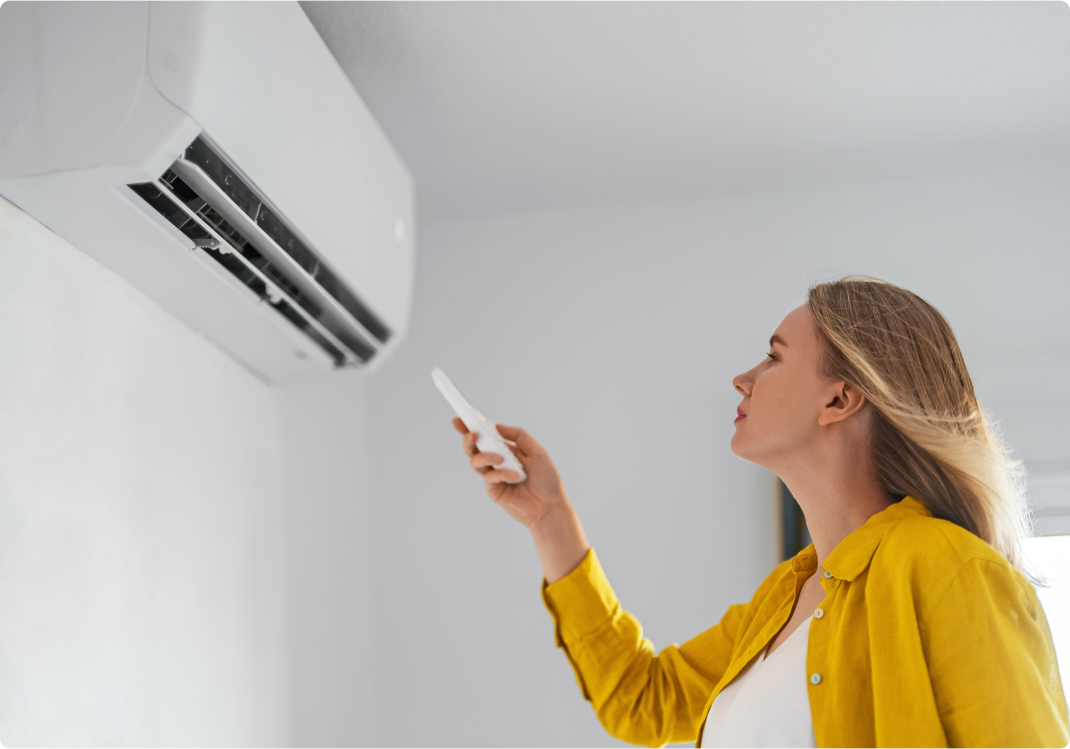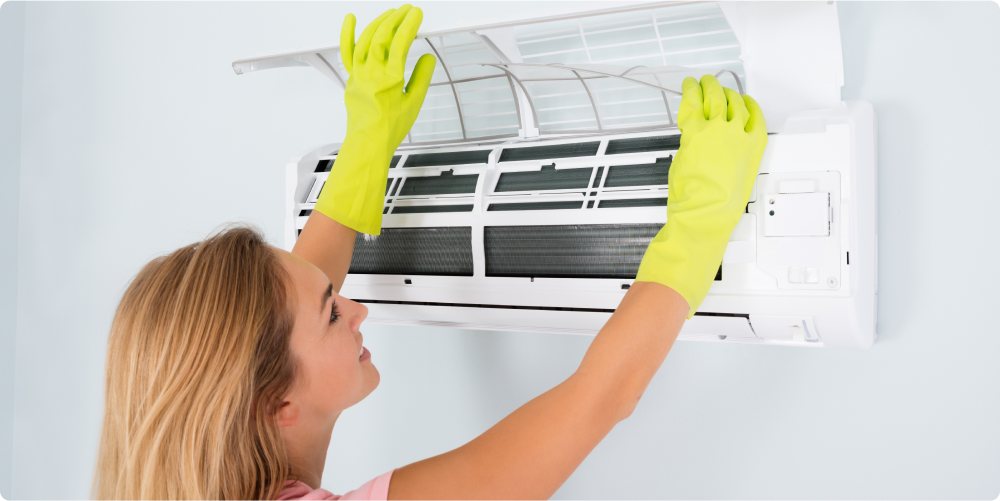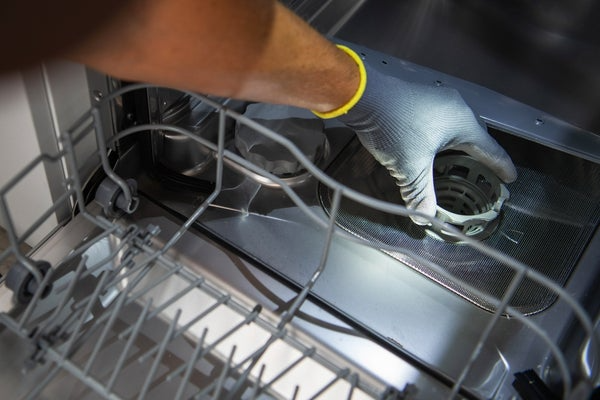Are any of these air conditioner smells harmful? Does it mean that the air conditioner needs to be repaired or replaced?
If your AC smells bad, allow us to clear the air, so to speak. Read on for some common reasons your AC may stink, and how to get rid of a bad smell from your air conditioner.
How do I know if the bad smell is coming from my AC?
Of course, if you’re smelling an uncommon odor only when the air conditioner is on and running — especially one that gets stronger the closer you get to the vents — it’s obvious the bad smell is coming from the AC. But what about when you smell a familiar smell, such as a dirty diaper or cigarette smoke, but you can’t seem to pinpoint where it’s coming from? Your air conditioner may be the perpetrator in that case, too.
When the AC is turned on, other smell sources may be sucked into the air, causing you to smell the diaper pail that’s in the nursery upstairs while you’re down in the basement, for example. Likewise, if you, a friend, a family member or a former tenant smoked inside the home, the fumes could have been pulled into the evaporator coil, causing the cigarette smell to permeate throughout the house every time you turn the unit on.
Why does my air conditioner smell? Seven possible reasons.
There are plenty of possible culprits when your AC smells bad. Below are seven common smells and possible reasons why your AC stinks.
- Musty/Dirty Socks: Dust and moisture sticking on the AC evaporator coil and filter
- Mold/Mildew: Clogged condensate drain line (i.e., water buildup), air conditioner too big for your home (i.e., running quick-cooling cycles and not adequately dehumidifying your home’s air), general moisture buildup
- Rotten Egg: Pest problem or dead animal in the ductwork or attic, natural gas leak near the ductwork
Safety Tip: If you suspect a gas leak in your home, open the windows, get out of the house immediately and call the gas company. It could be a life-threatening situation.
- Burning: Electrical/mechanical problem with the fan or compressor
- Sewage: Backed up sewer line or ruptured vent pipe near the ductwork
- Gun Powder: Shorted-out circuit board or fan motor
- Exhaust: Leaking engine fluids





